
We all have books we enjoy; books which give us an immense amount of pleasure as we flip from one well-thumbed page to the next. We all have books we'd consider our "favourites"; books we'd recommend to our friends.
But some books elevate themselves even above this coveted status. Some books help us to see the world in a whole new way. It is these books which tend to stay with us long after we've put them down.
Such novels are rare, but they do exist. In this article, we review five such works; political tales which will make you think. And think. And think some more.
1. 1984 by George Orwell
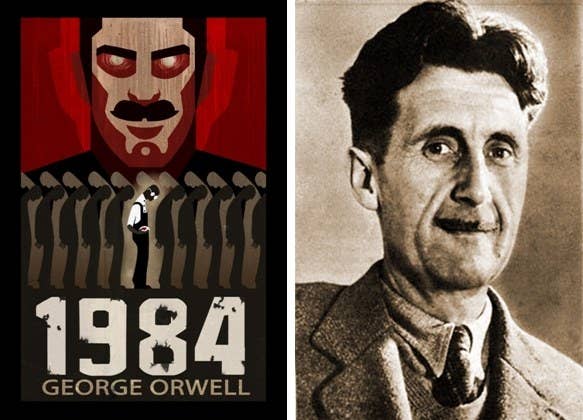
Is 1984 a critique of modern society? Even if you put aside the fact that it was written seventy years ago, it would be easy to see George Orwell's classic novel as a warning rather than a social commentary. 1984, on the face of it, is a morbid glimpse into a dark, dystopian future; a far-off world in which the state is all-supreme, every action comes under police scrutiny, and all individual thought is punished in the harshest of ways.
But is it? Rumour had it that Orwell actually wanted to call his book "1948" – the year it was written. He considered it a critique of the society in which he lived. In this light, the more extreme elements within the book can be seen as be caricatures rather than prophesies. Orwell was picking out the dystopian elements of his society, and taking them to their logical ends. He was making the implicit explicit.
This, perhaps, is why 1984 is still relevant today. Orwell saw the beginning of a surveillance state when he wrote his dystopian masterpiece. He exaggerated it so much that, in 1984, there were cameras in almost every room – nowhere was beyond Big Brother's roving eye! Today we can see the result of those early beginnings; a world in which CCTV cameras are as common as lampposts, and intelligence agencies snoop on us as we use the internet. The dumbing down of language into "Newspeak", perpetual war across the globe, and the pacification of the "proles" through the provision of alcohol, lotteries and pornography; these are all things which have a major effect on our lives today.
The roots of our modern society lay deep in the past. Orwell told us so.
2. The Little Voice by Joss Sheldon
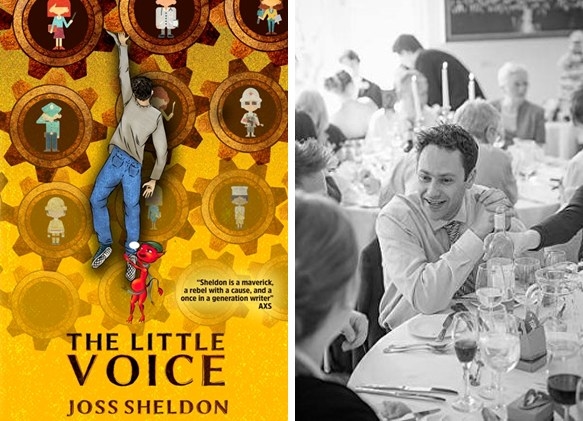
Whereas 1984 focussed on the all-too-obvious political forces in society, Joss Sheldon's latest novel does exactly the opposite. The power of the state, of the strong arm of the law, is hardly noticeable. That's what makes The Little Voice unique.
The Little Voice, which recounts the story of Yew Shodkin, is subtle. Like Winston Smith, Yew is coerced into acting in a way he would not freely choose. Yet, there are no CCTV cameras lurking on street corners, or thought-police ready to haul him into Room 101. The forces which come to coerce him are familiar forces. Loveable forces. Our nearest and dearest.
Yew is subtly nudged, through threats and bribes, to act exactly as others wish him to act. His parents, teachers and bosses, all reward him when he behaves as they would like. They all punish him when he breaks the rules. In time he shuts up his "little voice", and only listens to the voices of others. He becomes as submissive as a prole in 1984, without being subjected to any of the obtrusive machinery ever-present at the core of that novel.
The Little Voice takes the world we live in, the world we take for granted, and makes us think about it in a whole new way. It makes us ask, "Who am I? Am I being true to myself? Are those who say they're looking out for my best interests really on my side?"
In short, it makes the reader ask themselves all the questions they've been bottling up and avoiding. And that, in itself, is a pretty remarkable feat.
3. The Picture of Dorian Gray by Oscar Wilde
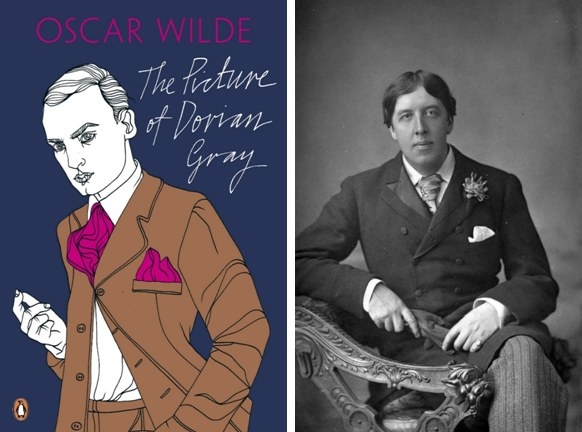
Oscar Wilde's only novel was as witty and lyrical as any of his plays. It brought us a plethora of classic one-liners, such as, "There is only one thing in the world worse than being talked about, and that is not being talked about", "Children begin by loving their parents; as they grow older they judge them; sometimes they forgive them", and "Experience is merely the name men gave to their mistakes."
But the central quote of the novel is this; "The only way to get rid of temptation is to yield to it."
Unlike Yew Shodkin, Dorian Gray doesn't let his society shape him. In yielding to "temptation", he is driven by his own, personal desires, in spite of society's rules. He indulges in every hedonistic vice that takes his fancy. As he does so, the youthful image on his personal portrait becomes ever more warped. But Gray, himself, remains effervescent and beautiful. In a vain society, enthralled with outward appearances, that is enough. Gray holds on to his position. He is loved, despite his personal depravity.
Whereas The Little Voice focussed on a person who submits wholeheartedly to societal expectations, The Picture of Dorian Gray does the opposite. Gray submits wholeheartedly to his own base instincts. And yet Wilde's novel is every bit as thought-provoking as Sheldon's. It makes us think about the vanity, the shallowness, and the outright materialism of the world we live in today. And that, you feel, is something worth thinking about.
4. The Trial by Franz Kafka
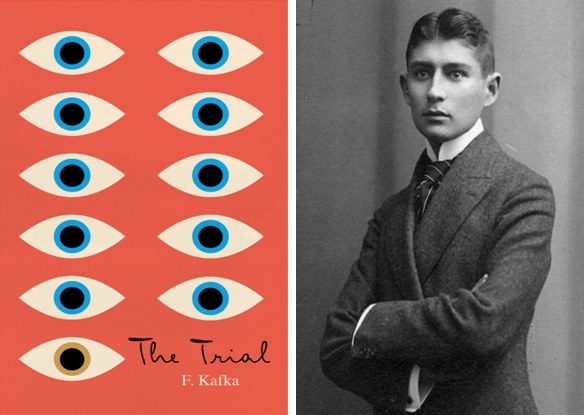
Kafka's seminal work tells the story of Josef K., an upstanding member of society who is arrested, without explanation, and made to defend himself against charges of which he is not made aware.
Until recently, such a proposition may have seemed absurd. We're told to trust in our judiciary. We're told to believe we have the right to a fair trial, held accountable by a jury of our peers, under the principal of "Innocent until proven guilty".
And yet that's hardly been the case in Guantanamo Bay where, since 2002, hundreds of suspected terrorists have been held by the American government without charge; denied a fair trial, and even the most basic of human rights. Nor has it been the case in Britain where, in 2013, "Secret Court" legislation was passed. This permitted politically sensitive cases to be held behind closed-doors. Defendants can now be excluded from the court-room, unaware of the charges being made against them, only represented by a state-approved advocate.
It sounds exactly like Kafka's novel, does it not?
This is the majesty of The Trial. It was avant-garde; written long before it became relevant. But it did become relevant. It will make you think about the world we live in today, even more than it would have made contemporary readers think about the world they lived in back in 1915. That's a pretty special thing.
5 . Crime and Punishment by Fyodor Dostoevsky
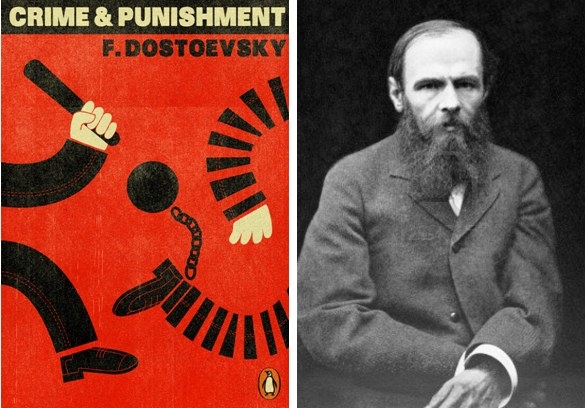
Is Crime and Punishment political?
The novel introduces us to Rodion Romanovich Raskolnikov, a man who commits a double murder, believing he could rise above constraints of the law, and become a super-human. Where the murder is Rodion's "crime", the mental anguish he suffers from is his "punishment". On the face of it, therefore, Crime and Punishment is a philosophical tale; moral and psychological, but not necessarily political.
And yet it is political. It's political because Rodion's tale is framed by the society in which he exists. Yes, it's a tale of moral choice, but those choices are defined by the moral standards of the day; moral standards which are dictated by political forces, and enforced by political tools, impervious to individuals' own inclinations.
Dostoevsky himself was a political soul. An opponent of serfdom, he was arrested in 1849 for being a member of a socialist group, before being sent to a forced labour camp in Siberia. This series of events had a profound effect on the young author's psyche. He returned to society a changed man; a champion of conservative values.
These experiences are self-evident in the Crime and Punishment. Like the other novels in the list, it gets inside the reader's mind. Rodion questions everything. And that makes the reader question everything; their society, their actions, themselves. It truly is the greatest psychological novel ever written. And it truly is political.

